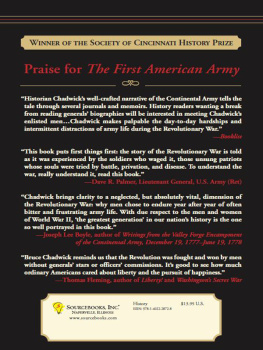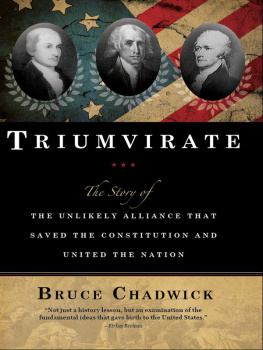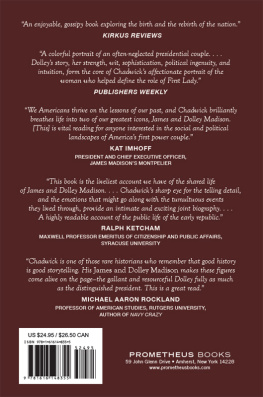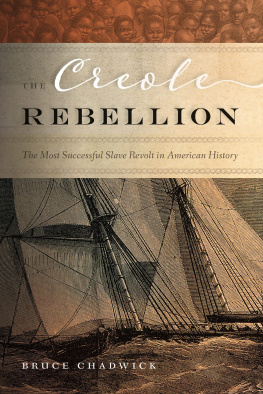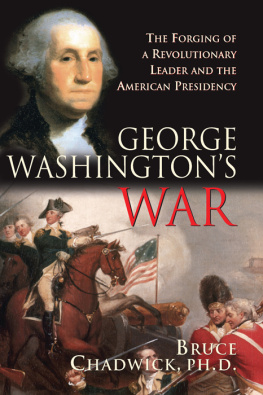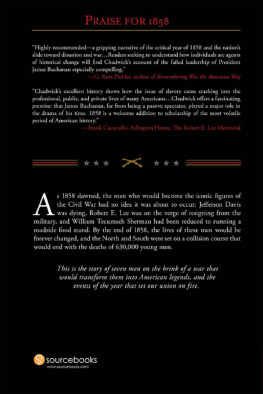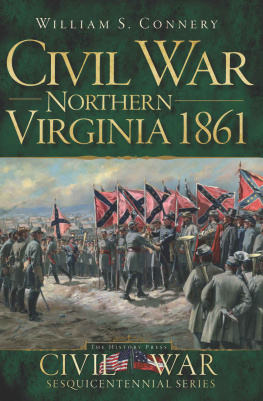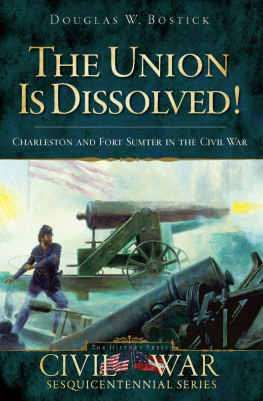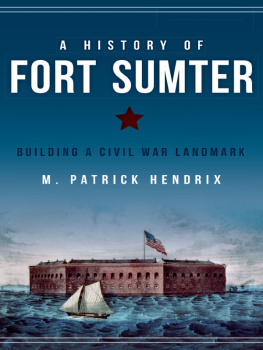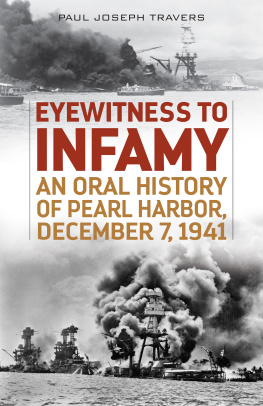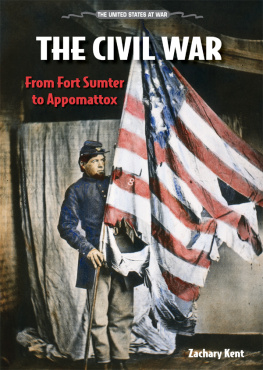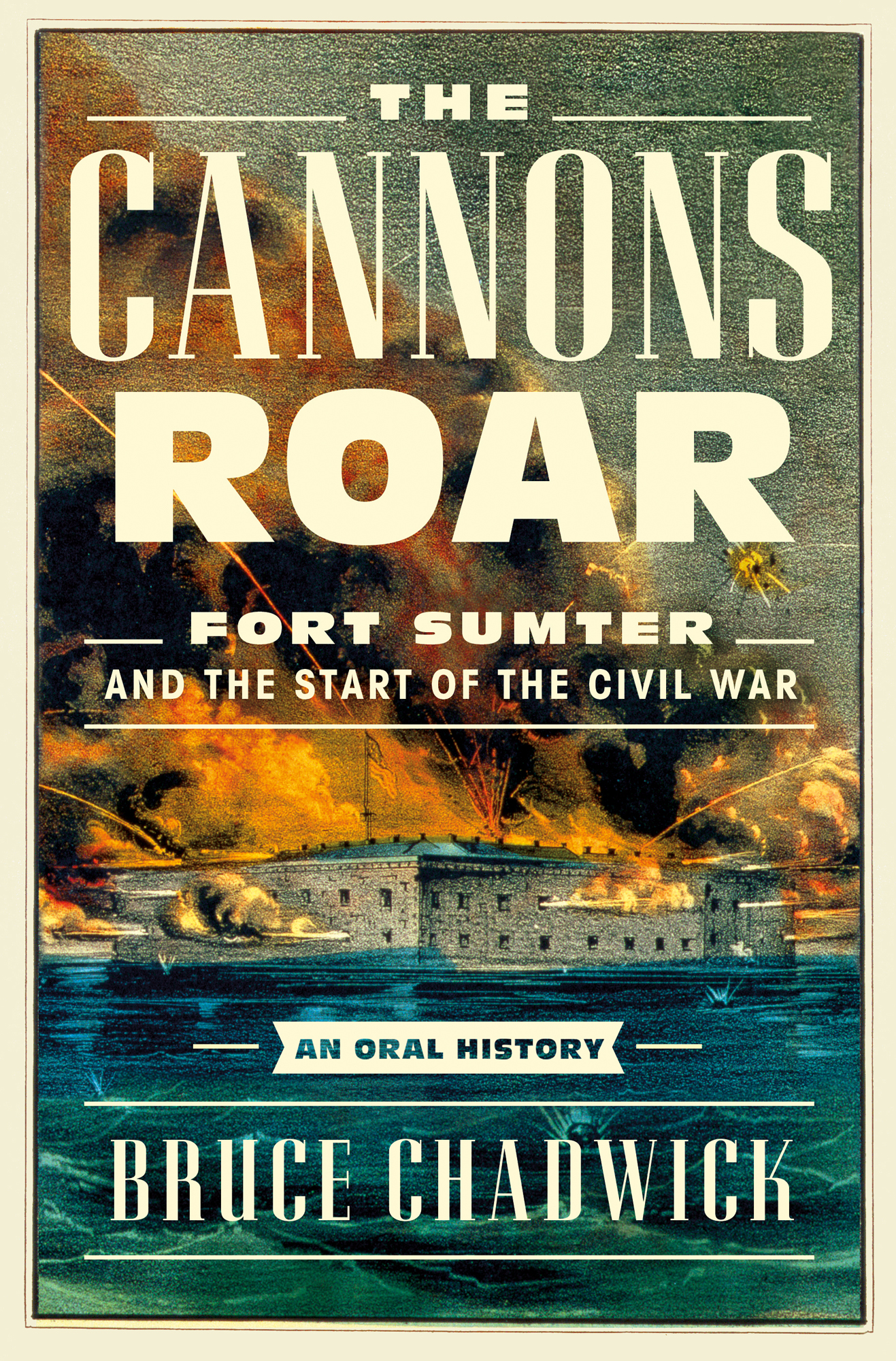Bruce Chadwick - The Cannons Roar: Fort Sumter and the Start of the Civil War―An Oral History
Here you can read online Bruce Chadwick - The Cannons Roar: Fort Sumter and the Start of the Civil War―An Oral History full text of the book (entire story) in english for free. Download pdf and epub, get meaning, cover and reviews about this ebook. City: New York, year: 2023, publisher: Pegasus Books, genre: Politics. Description of the work, (preface) as well as reviews are available. Best literature library LitArk.com created for fans of good reading and offers a wide selection of genres:
Romance novel
Science fiction
Adventure
Detective
Science
History
Home and family
Prose
Art
Politics
Computer
Non-fiction
Religion
Business
Children
Humor
Choose a favorite category and find really read worthwhile books. Enjoy immersion in the world of imagination, feel the emotions of the characters or learn something new for yourself, make an fascinating discovery.

- Book:The Cannons Roar: Fort Sumter and the Start of the Civil War―An Oral History
- Author:
- Publisher:Pegasus Books
- Genre:
- Year:2023
- City:New York
- Rating:5 / 5
- Favourites:Add to favourites
- Your mark:
The Cannons Roar: Fort Sumter and the Start of the Civil War―An Oral History: summary, description and annotation
We offer to read an annotation, description, summary or preface (depends on what the author of the book "The Cannons Roar: Fort Sumter and the Start of the Civil War―An Oral History" wrote himself). If you haven't found the necessary information about the book — write in the comments, we will try to find it.
On April 12, 1861, Confederate troops began firing on Fort Sumter, beginning the bloodiest conflict in American history. Since that time numerous historians have described the attack in many well-regarded books, yet the event still remains overlooked at times in the minds of the public.
The Cannons Roar seeks to remedy that. Rather than providing a third-person, after-the-fact description, acclaimed author Bruce Chadwick will tell the story of the attack from the people who were in the thick of it. In so doing, readers can hear from people themselves, telling a compelling story in a new way that both draws readers in and lets them walk away with a better understanding and appreciation of one of the most dramatic and important events in our nations history. The Cannons Roar will not only provide portraits of the major players that are more descriptive than those offered by historians over the years, it will give voice to dozens of regular people from across the country and socioeconomic spectrum, to provide readers with a true and complete understanding of the mood of the country and in Charleston.
Using letters, newspaper articles, diaries, journals, and other written sources, Chadwick describes in vivid detail the events preceding the attack, the attack itself, and its aftermath. While we hear from historic pillars like Abraham Lincoln to PGT Beauregard to Jefferson Davis, Chadwick also features Charleston merchants and Northern farmers, high society doyennes and the dregs, South Carolinas new governor Francis Pickens, who was the blustery former Minister to Russia. Collectively, readers will obtain a fuller understanding of the politics and thinking of political and military leaders that influenced their decisions or lack thereof. The book will also capture both the South and Norths expectations regarding England entering the war (as well as letters from Englands leaders showing their reluctance to do so), as well as an expectation on both sides of a quick resolution.
Skillfully combining traditional history with the in-the-moment ethos of an oral history, The Cannons Roar to bring this historic moment in American history to new and vivid life.
Bruce Chadwick: author's other books
Who wrote The Cannons Roar: Fort Sumter and the Start of the Civil War―An Oral History? Find out the surname, the name of the author of the book and a list of all author's works by series.

